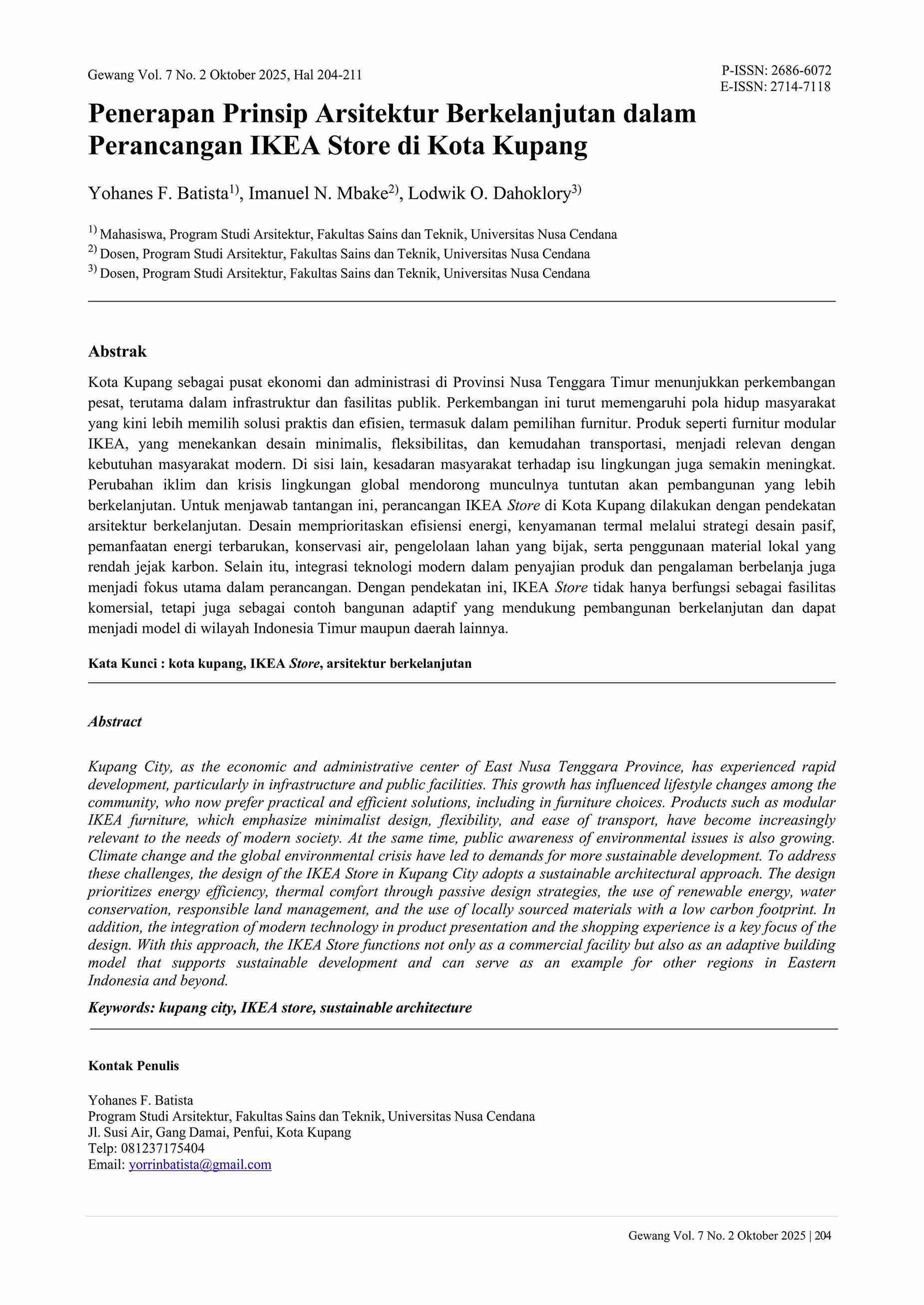Application of Sustainable Architecture Principles in the Design of the IKEA Store in Kupang City
Main Article Content
Abstract
Kupang City, as the economic and administrative center of East Nusa Tenggara Province, has experienced rapid development, particularly in infrastructure and public facilities. This growth has influenced lifestyle changes among the community, who now prefer practical and efficient solutions, including in furniture choices. Products such as modular IKEA furniture, which emphasize minimalist design, flexibility, and ease of transport, have become increasingly relevant to the needs of modern society. At the same time, public awareness of environmental issues is also growing. Climate change and the global environmental crisis have led to demands for more sustainable development. To address these challenges, the design of the IKEA Store in Kupang City adopts a sustainable architectural approach. The design prioritizes energy efficiency, thermal comfort through passive design strategies, the use of renewable energy, water conservation, responsible land management, and the use of locally sourced materials with a low carbon footprint. In addition, the integration of modern technology in product presentation and the shopping experience is a key focus of the design. With this approach, the IKEA Store functions not only as a commercial facility but also as an adaptive building model that supports sustainable development and can serve as an example for other regions in Eastern Indonesia and beyond.
Downloads
Article Details
This license enables reusers to distribute, remix, adapt, and build upon the material in any medium or format, so long as attribution is given to the creator. The license allows for commercial use

